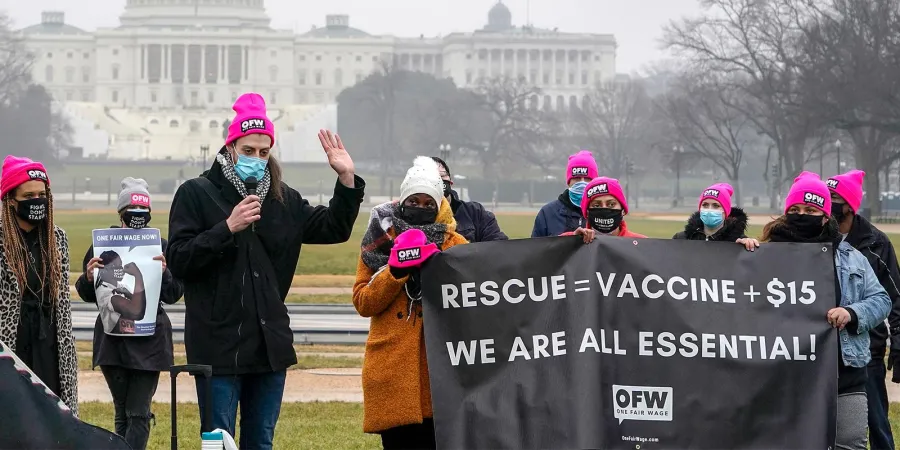New leaders make new push to raise the federal minimum wage

Here’s a sure sign of new leadership in Washington. There’s a renewed push to increase the minimum wage to $15 an hour, an idea that went nowhere when the Trump administration and anti-worker members of Congress were in power.
To lift millions of working people out of poverty, President Joe Biden’s proposal, a part of his American Rescue Plan would raise the federal minimum wage from $7.25 an hour to $15 an hour by 2025 and eliminate the tipped minimum wage of $2.13 an hour.
Though a robust debate on the minimum wage provision in the American Rescue Plan – the $1.9 trillion COVID-19 relief package – is expected, the president reiterated his support for it and said he’s committed to raising the wage through a “separate negotiation” with Congress. The Raise the Wage Act was also recently introduced by several members of the new majority in Congress.
"No one should work 40 hours a week and live below the poverty wage. And if you're making less than $15 an hour, you're living below the poverty wage," Biden told CBS News recently.
The current rate of $7.25 has not increased since 2009, and the minimum wage for workers who work for tips has remained unchanged since 1991. With the rising cost of living eroding purchasing power over the last dozen years, $7.25 an hour is a “starvation wage,” according to Vermont Sen. Bernie Sanders, the incoming chairman of the Senate Budget Committee.
In recognition of that fact, many states have taken action on their own to reduce income inequality and elevated the minimum that their citizens must be paid. Go here to find out the hourly rate in your state.
About 32 million workers – 21% of the U.S. workforce – would benefit from an increased federal minimum wage, according to the Economic Policy Institute (EPI) and the National Employment Law Project (NELP). Minorities and women – especially women of color – would especially benefit, according to this fact sheet produced by the EPI and NELP, which has other eye-opening facts about the far-reaching impact of the Raise the Wage Act.
In a tweet, the EPI also said this: “Essential and front-line workers make up a majority of those who would benefit.”
